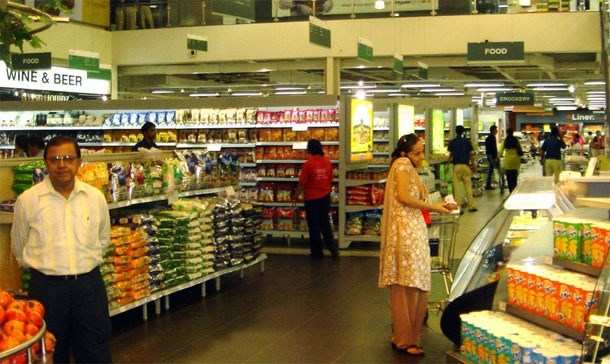Why Not the Marts? My take on FDI
“FDI investment will be a good bargain for India“, say the experts. Consumers will have access to superior quality goods at bare minimum costs and the farmers will also get better returns, which could assist in infrastructure growth.
In the last few weeks, on-going discussions between the government and the opposition over FDI in the retail sector in India caught the attention among retailers, but the middle class populace is still confused about the issues. What does the decision mean for a common man? Will this bring a change by providing relief from cruel food prices?

“FDI investment will be a good bargain for India“, say the experts. Consumers will have access to superior quality goods at bare minimum costs and the farmers will also get better returns, which could assist in infrastructure growth.
In the last few weeks, on-going discussions between the government and the opposition over FDI in the retail sector in India caught the attention among retailers, but the middle class populace is still confused about the issues. What does the decision mean for a common man? Will this bring a change by providing relief from cruel food prices?
Experts believe that this move will benefit the $ 1.6 trillion economy, help in creating logistics development and enhancement in farm infrastructure thereby increasing the rate of employment in India. The farmer will be the chief gainer.
Every year due to lack of storage facilities, farmers incur heavy post-harvest losses to the tune of over Rs.1 trillion a year. With this FDI investment around 57% of this wastage could be avoided.
Nearly 35% – 40% of fruits and vegetables and 10% of food grains go waste every year, due to poor farm infrastructure which leads to rise in price value of goods, which is in turn passed on to the end-users. According to the government, an Indian farmer gets only a third of the total price a consumer pays against two–third in modern retail.
A 2007 World Bank study shows that the average price an Indian farmer gets from horticulture production is barely 12%-15% of what is paid at a retail outlet.
Losses in FMCG products are caused due to poor technology, supply chain mismanagement, lack of efficiency in handling products, etc. For every rupee a consumer spends on onion, only 55paise goes to the farmer.
Walmart has already started a direct-farm programme to incur all this inefficiency in the supply chain linking farmers to consumers. The company says this programme began with 65 farmers in Malerkotla near Ludhiana.
It has expanded to include 3000 farmers-mainly small and marginal across U.P, the national capital region Haryana, Karnataka and Maharashtra. Analysts say Indian retailer would benefit from foreign capital. The real estate sectors too are expected to get a boost. Reliance is the other Indian company to access this model locally, under their retail segment (Reliance Fresh).
Retail chains will also boost government revenue. The Confederation of Indian Industry (CII)- Boston Consulting Group (BCG) report says that by 2020, the government is likely to receive additional income of $ 25-$30 billion. Bharti-Walmart has started centres in Punjab, Delhi and Amritsar to train people and nearly 1200 – almost a quarter of them women, have found jobs.
However, on the other side many small shopkeepers are worried as they say their customer base is declining as a result of these retail shops, and if this FDI project comes to India they all have to close down their shops.
Hence, this time the government has to go through a tough chapter in order to get a green signal from the conflicting public and of course the opposition. There are a lot of hurdles the government as well as the foreign retail giants have to clear, viz. the opposition parties, red-tapism, etc. All the most important, they have to get the go ahead from the Indian end-customers.
some source of information taken from TOI
To join us on Facebook Click Here and Subscribe to UdaipurTimes Broadcast channels on GoogleNews | Telegram | Signal





